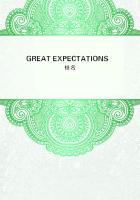"Stranger!"
The voice was not loud, but clear and penetrating. I looked vainly up and down the narrow, darkening trail. No one in the fringe of alder ahead; no one on the gullied slope behind.
"O! stranger!"
This time a little impatiently. The California classical vocative, "O," always meant business.
I looked up, and perceived for the first time on the ledge, thirty feet above me, another trail parallel with my own, and looking down upon me through the buckeye bushes a small man on a black horse.
Five things to be here noted by the circumspect mountaineer.
FIRST, the locality,--lonely and inaccessible, and away from the regular faring of teamsters and miners. SECONDLY, the stranger's superior knowledge of the road, from the fact that the other trail was unknown to the ordinary traveler. THIRDLY, that he was well armed and equipped. FOURTHLY, that he was better mounted.
FIFTHLY, that any distrust or timidity arising from the contemplation of these facts had better be kept to one's self.
All this passed rapidly through my mind as I returned his salutation.
"Got any tobacco?" he asked.
I had, and signified the fact, holding up the pouch inquiringly.
"All right, I'll come down. Ride on, and I'll jine ye on the slide."
"The slide!" Here was a new geographical discovery as odd as the second trail. I had ridden over the trail a dozen times, and seen no communication between the ledge and trail. Nevertheless, I went on a hundred yards or so, when there was a sharp crackling in the underbrush, a shower of stones on the trail, and my friend plunged through the bushes to my side, down a grade that I should scarcely have dared to lead my horse. There was no doubt he was an accomplished rider,--another fact to be noted.
As he ranged beside me, I found I was not mistaken as to his size; he was quite under the medium height, and but for a pair of cold, gray eyes, was rather commonplace in feature.
"You've got a good horse there," I suggested.
He was filling his pipe from my pouch, but looked up a little surprised, and said, "Of course." He then puffed away with the nervous eagerness of a man long deprived of that sedative.
Finally, between the puffs, he asked me whence I came.
I replied, "From Lagrange."
He looked at me a few moments curiously, but on my adding that I had only halted there for a few hours, he said: "I thought I knew every man between Lagrange and Indian Spring, but somehow I sorter disremember your face and your name."
Not particularly caring that he should remember either, I replied half laughingly, that, as I lived the other side of Indian Spring, it was quite natural. He took the rebuff, if such it was, so quietly that as an act of mere perfunctory politeness I asked him where he came from.
"Lagrange."
"And you are going to--"
"Well! that depends pretty much on how things pan out, and whether I can make the riffle." He let his hand rest quite unconsciously on the leathern holster of his dragoon revolver, yet with a strong suggestion to me of his ability "to make the riffle" if he wanted to, and added: "But just now I was reck'nin' on taking a little pasear with you."
There was nothing offensive in his speech save its familiarity, and the reflection, perhaps, that whether I objected or not, he was quite able to do as he said. I only replied that if our pasear was prolonged beyond Heavytree Hill, I should have to borrow his beast.
To my surprise he replied quietly, "That's so," adding that the horse was at my disposal when he wasn't using it, and HALF of it when he was. "**** has carried double many a time before this," he continued, "and kin do it again; when your mustang gives out I'll give you a lift and room to spare."
I could not help smiling at the idea of appearing before the boys at Red Gulch en croupe with the stranger; but neither could I help being oddly affected by the suggestion that his horse had done double duty before. "On what occasion, and why?" was a question I kept to myself. We were ascending the long, rocky flank of the divide; the narrowness of the trail obliged us to proceed slowly, and in file, so that there was little chance for conversation, had he been disposed to satisfy my curiosity.
We toiled on in silence, the buckeye giving way to chimisal, the westering sun, reflected again from the blank walls beside us, blinding our eyes with its glare. The pines in the canyon below were olive gulfs of heat, over which a hawk here and there drifted lazily, or, rising to our level, cast a weird and gigantic shadow of slowly moving wings on the mountain side. The superiority of the stranger's horse led him often far in advance, and made me hope that he might forget me entirely, or push on, growing weary of waiting. But regularly he would halt by a bowlder, or reappear from some chimisal, where he had patiently halted. I was beginning to hate him mildly, when at one of those reappearances he drew up to my side, and asked me how I liked Dickens!
Had he asked my opinion of Huxley or Darwin, I could not have been more astonished. Thinking it were possible that he referred to some local celebrity of Lagrange, I said, hesitatingly:--
"You mean--"
"Charles Dickens. Of course you've read him? Which of his books do you like best?"
I replied with considerable embarrassment that I liked them all,--as I certainly did.
He grasped my hand for a moment with a fervor quite unlike his usual phlegm, and said, "That's me, old man. Dickens ain't no slouch. You can count on him pretty much all the time."















